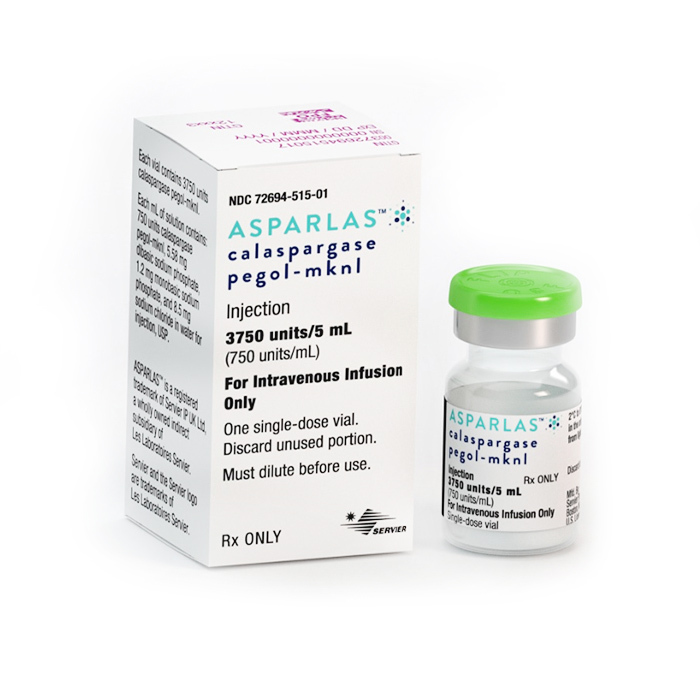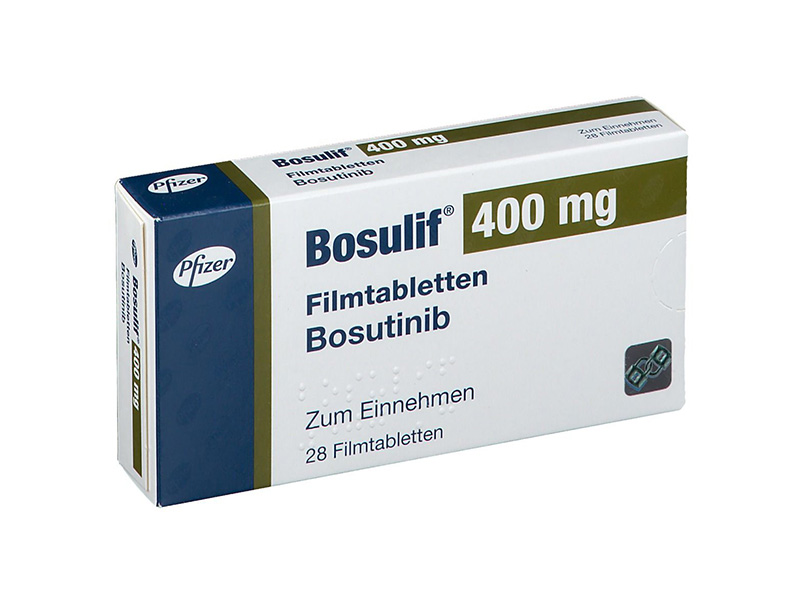Asparlas (calaspargase pegol-mknl) vs Bosulif (bosutinib)
Asparlas (calaspargase pegol-mknl) vs Bosulif (bosutinib)
Asparlas (calaspargase pegol-mknl) is a chemotherapeutic agent specifically used in the treatment of acute lymphoblastic leukemia (ALL) in pediatric and young adult patients, functioning as a form of asparaginase that helps to deplete the amino acid asparagine, which is essential for cancer cell survival. Bosulif (bosutinib), on the other hand, is a tyrosine kinase inhibitor indicated for the treatment of adults with chronic myelogenous leukemia (CML) and works by inhibiting the Bcr-Abl kinase that promotes CML. The choice between Asparlas and Bosulif would depend on the specific type of leukemia a patient has, as they are not interchangeable and are used to treat different leukemia subtypes.
Difference between Asparlas and Bosulif
| Metric | Asparlas (calaspargase pegol-mknl) | Bosulif (bosutinib) |
|---|---|---|
| Generic name | Calaspargase pegol-mknl | Bosutinib |
| Indications | Acute lymphoblastic leukemia (ALL) | Chronic myelogenous leukemia (CML) |
| Mechanism of action | Asparagine-specific enzyme | Tyrosine kinase inhibitor |
| Brand names | Asparlas | Bosulif |
| Administrative route | Intravenous | Oral |
| Side effects | Allergic reactions, elevated liver enzymes, pancreatitis, thrombosis, hemorrhage, and others | Diarrhea, nausea, thrombocytopenia, rash, increased liver enzymes, and others |
| Contraindications | History of serious hypersensitivity to asparaginase | Hypersensitivity to bosutinib or any component of the formulation |
| Drug class | Antineoplastic agent, enzyme | Antineoplastic agent, tyrosine kinase inhibitor |
| Manufacturer | Servier Pharmaceuticals | Pfizer |
Efficacy
Asparlas (Calaspargase Pegol-mknl) Efficacy in Leukemia
Asparlas, known generically as calaspargase pegol-mknl, is a novel formulation of an enzyme called L-asparaginase that is used in the treatment of acute lymphoblastic leukemia (ALL), which is a type of cancer of the blood and bone marrow that affects white blood cells. Asparlas is specifically indicated for use in pediatric and young adult patients aged 1 month to 21 years. The efficacy of Asparlas was primarily established in a clinical trial where it was used as a component of a multi-agent chemotherapeutic regimen. Patients treated with Asparlas demonstrated a high rate of complete remission, which is a significant indicator of efficacy in ALL treatment. The drug works by depleting the amino acid asparagine, which leukemia cells require to grow and multiply, thereby inhibiting their proliferation.
Bosulif (Bosutinib) Efficacy in Leukemia
Bosulif, with the generic name bosutinib, is a tyrosine kinase inhibitor approved for the treatment of adult patients with chronic myelogenous leukemia (CML). This medication is particularly used for patients with Philadelphia chromosome-positive CML in the chronic, accelerated, or blast phase who are resistant or intolerant to prior therapy. The efficacy of Bosulif was demonstrated in clinical trials where it showed the ability to induce major cytogenetic response (MCyR) and complete cytogenetic response (CCyR) in a significant proportion of patients. These responses are critical endpoints that indicate the reduction or elimination of leukemia cells in the patient's body. Bosulif operates by inhibiting the Bcr-Abl kinase, which is responsible for the uncontrolled proliferation of abnormal cells in CML.
Comparative Considerations
While both Asparlas and Bosulif are used in the treatment of different forms of leukemia, their mechanisms of action and the specific patient populations they serve are distinct. Asparlas is used in a younger demographic and is part of a broader chemotherapeutic regimen for ALL, whereas Bosulif is targeted towards adult patients with CML and is often used when patients have not responded to or cannot tolerate other treatments. Both medications have shown efficacy in their respective indications, contributing to the overall management and treatment of leukemia.
Conclusion
In conclusion, Asparlas and Bosulif provide effective treatment options for patients with different types of leukemia, demonstrating significant efficacy in their respective clinical trials. Asparlas is effective in inducing remission in pediatric and young adult patients with ALL, while Bosulif is effective in achieving cytogenetic responses in adult patients with CML. The use of these medications is a critical component in the treatment protocols for leukemia and represents the advancement in targeted cancer therapies.
Regulatory Agency Approvals
Asparlas
-
Food and Drug Administration (FDA), USA

Bosulif
-
European Medical Agency (EMA), European Union

-
Food and Drug Administration (FDA), USA

Access Asparlas or Bosulif today
If Asparlas or Bosulif are not approved or available in your country (e.g. due to supply issues), you can access them via Everyone.org.
How it works

Make an enquiry
Choose the medicine you want to buy, answer a couple of questions, and upload your prescription to speed things up. We’ll get back to you within 24 hours.


Make an enquiry
Choose the medicine you want to buy, answer a couple of questions, and upload your prescription to speed things up. We’ll get back to you within 24 hours.


Breeze through the paperwork
We'll guide you through the required documents for importing unapproved medicine, ensuring you have all the necessary information.


Get a personalized quote
We’ll prepare a quote for you, including medicine costs and any shipping, administrative, or import fees that may apply.


Receive your medicine
Accept the quote and we’ll handle the rest - sourcing and safely delivering your medicine.

Some text on this page has been automatically generated. Speak to your physician before you start a new treatment or medication.
Let's talk
If you have any questions, call us or send us a message through WhatsApp or email:
Contact us




